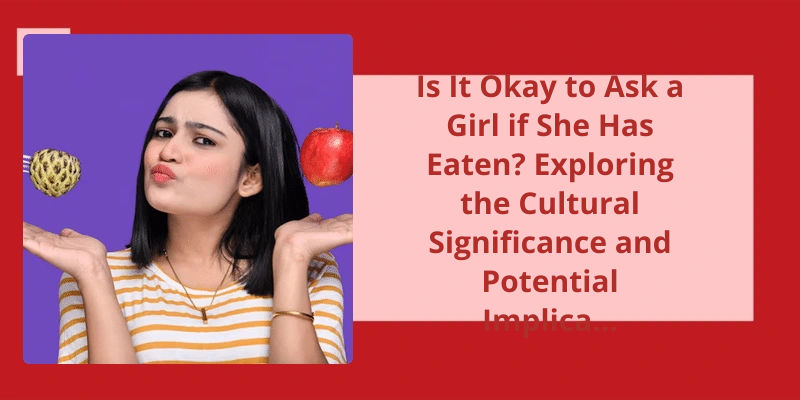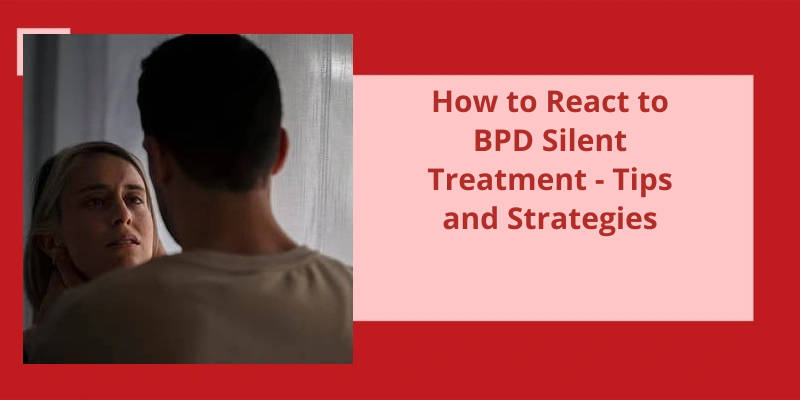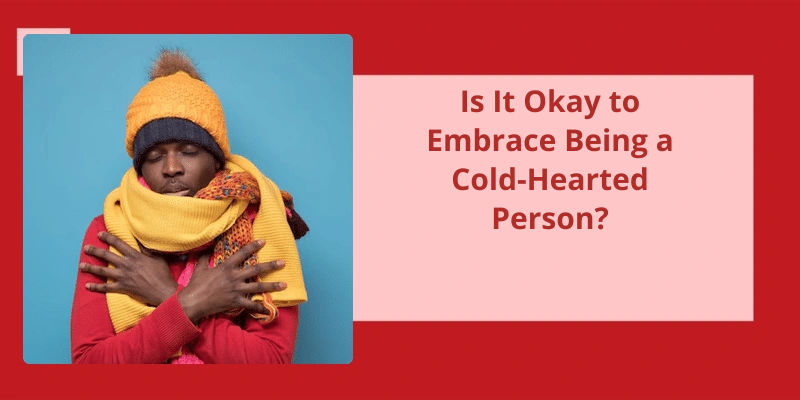As social beings, we often find ourselves engaged in conversations where we seek to connect with others and establish a meaningful bond. One of the most common questions that arise during interactions is about food; whether it’s about sharing a meal, recommending a restaurant, or simply inquiring about someone's food preferences. However, when it comes to asking a girl if she’s eaten, the situation becomes heterogeneous. Some see it as a polite inquiry, while others view it as a sign of harassment. So, is it okay to ask a girl if she’s eaten? This question has sparked heated debates among different communities, and there’s no clear answer to this. However, in this article, we will explore the different perspectives, cultural contexts, and the consequences of this act, aiming to provide some insights on how to navigate this issue.
What Does It Mean When a Guy Asks if You’ve Eaten?
It could be a sign that he’s interested in your well-being and wants to ensure that you’re taking care of yourself. Perhaps he’s concerned that you aren’t eating enough or that you aren’t getting the proper nutrition that you need. Alternatively, he may simply be trying to strike up a conversation with you and is using your eating habits as a starting point. Regardless of his intentions, it’s always a good idea to be honest and open with him about your eating habits and any concerns that you may have.
It’s also possible that the guy asking if youve eaten is simply trying to be polite and make small talk. In many cultures, it’s common to inquire about someones well-being, including whether or not they’re hungry or have recently eaten. If this is the case, then the question is likely meant as a friendly gesture rather than an opportunity to pursue a romantic relationship.
Of course, it’s also possible that the guy is interested in you romantically and is using the question as a subtle way of expressing his feelings. Asking about your eating habits may seem like an innocuous question, but it can actually reveal a lot about your lifestyle and personality. For example, if you’re someone who enjoys trying new foods and exploring different cuisines, he may see this as a sign that you’re adventurous and open-minded.
Ultimately, the question of whether or not a guy asking if youve eaten is a sign of romantic interest depends on a variety of factors, including cultural norms, personal preferences, and the context of the conversation. If you’re unsure about his intentions, it’s always a good idea to listen to your instincts and pay attention to any other signals he may be sending.
In any case, it’s important to remember that communication is key in any relationship, whether it’s platonic or romantic. If you’re interested in the guy and would like to pursue a romantic relationship, don’t be afraid to be direct and express your feelings. Alternatively, if you prefer to keep things casual or aren’t interested in him romantically, it’s okay to politely decline his advances or steer the conversation in a different direction.
Food isn’t only a basic necessity for survival, but it also holds significant cultural significance in different parts of the world. From social gatherings to family functions, food plays a crucial role in bringing people together. As a result, it’s not uncommon to hear people asking if you’ve eaten or urging you to take more food, particularly in certain cultures where hospitality is highly valued. Let’s take a closer look at why people keep asking if you’ve eaten and what it could mean.
Why Do People Keep Asking Me if I Ate?
This cultural practice of asking if someone has eaten reflects the value of hospitality and concern for others. In some cultures, food is seen as a way to bring people together and build community, and it’s customary to offer food and drink as a sign of welcome. By asking if someone has eaten, people are expressing their concern for their guests or companions, and they may even offer food or drink as a way to show their generosity and hospitality.
Moreover, asking if someone has eaten may also serve as a conversation starter or a way to break the ice. In some cultures, food-related topics are a popular way to initiate conversation, and guests may feel more comfortable talking about their food preferences or sharing stories about their culinary experiences.
However, asking if someone has eaten can also be seen as intrusive or impolite in some situations. For example, if someone has just finished a meal or isn’t feeling hungry, they may find it unnecessary or annoying to be asked about their food intake. In addition, some people may feel uncomfortable discussing their eating habits or preferences, especially if they’ve dietary restrictions or health issues.
If you’re a guest in someones home or visiting a new place, accepting food and drinks as a sign of welcome can be a way to show appreciation and build relationships. On the other hand, if you feel uncomfortable or not hungry, it’s okay to decline politely and explain your reasons. Ultimately, the way we talk about food reflects our values and beliefs, and it can be a powerful way to connect with others and create a sense of community.
Cultural Significance of Food and It’s Role in Building Community
Food plays an important role in building community, as it brings people together to share traditions and create new ones. The cultural significance of food reflects the history, identity and values of a community and can be seen in the ingredients, cooking techniques, and rituals surrounding it. It’s importance goes beyond nourishing the body and can deepen social bonds, create a sense of belonging and preserve cultural heritage.
Now that we know some common ways to ask someone if they’ve eaten dinner, it’s important to consider the context of the situation and the relationship we’ve with the person we’re asking. In some cultures, it may be customary to inquire about someone’s meal before getting to other topics of conversation. Similarly, in a business setting, asking about someone’s dinner can be seen as a polite gesture before delving into work-related matters. Whatever the situation may be, knowing how to ask about dinner can help us to navigate social interactions and make meaningful connections with others.
How Do You Ask Someone if He Has Eaten Dinner?
Asking someone about their dinner is an instinctive act of concern and empathy. It’s a way of showing closeness towards someone, caring about their health and well-being. While the question itself may be straightforward, it takes on different forms and can be customized depending on the situation, culture, and the relationship with the person.
In Western culture, the most common way to ask someone if they’ve eaten dinner is by using the past tense of the verb “to eat”. You can straightforwardly ask “Did you eat dinner?”, which is a natural and widely accepted phrasing. A more casual way to ask this question would be “Have you’d dinner yet?”. Both phrases convey the same meaning, but the latter one brings a sense of informality to the conversation.
In some cultures, asking about the health and well-being of someone has a more significant cultural significance. This is why the way to ask someone about their dinner might differ accordingly. For example, in China, people would ask their friends if they’ve “吃了吗?”(Chi le ma?), which means “Have you eaten?”. This phrase often reflects on the cultural value of hospitality and the ability to share and provide food with others.
If you want to be more specific and find out what they ate during dinner, you can ask them “What did you eat for dinner?”. This question shows interest in their dietary habits, suggesting that you care about their health and well-being.
It’s one of the simplest ways to express empathy and to engage in small talk.
Asking someone if they’ve eaten their lunch is a common courtesy that shows you care. However, there’s an important grammatical detail to consider: the verb choice. By using “eaten,” you’re asking about a specific action that’s already taken place, instead of a more general question like “Have you’d lunch?” which could refer to anything from a light snack to a full meal. With this in mind, let’s explore the significance of mealtime communication.
Have You Eaten Your Lunch Is It Correct?
When asking someone if they’ve eaten their lunch, it’s important to use the correct sentence structure. By using the past participle verb “eaten”, you’re asking about a completed action. This implies that you’re asking if the person has already finished their lunch.
Additionally, by using the possessive pronoun “your”, you’re directing the question specifically to the person you’re speaking to. This makes the question more personal and focused, rather than using a more general phrasing like “Did everyone eat their lunch?”
It’s also worth noting that asking about someones lunch is a common and polite way to show concern for their wellbeing and basic needs. By engaging in this type of conversation, you’re demonstrating empathy and caring for others.
In some contexts, it may be more appropriate to ask a different question related to lunch, such as “What did you’ve for lunch?”. This type of question allows for more open-ended responses and can be a good conversation starter.
Overall, it’s important to use clear and specific language when asking questions about someones lunch. By choosing the right words, you can show that you care about the person and are interested in their wellbeing.
Etiquette Tips for Asking About Someone’s Lunch (e.g. When It Is Appropriate, How to Phrase the Question Politely, Etc.)
When asking a person about their lunch, it’s important to ask in a polite and respectful manner, avoiding any intrusive or personal questions. This is best done in casual or social settings and can be phrased as a simple conversation starter or an expression of curiosity. Avoid forcing a response and respect the person’s privacy if they choose not to answer.
Understanding cultural etiquette is important when it comes to asking someone about their food. There are various factors that can come into play, including your relationship with the person and the context of the situation. While it may be acceptable in some cultures to inquire about the food, in others it can be seen as impolite. However, one thing that’s generally appreciated is showing appreciation for the food and the people who made it.
Is It Rude to Ask What Someone Is Eating?
However, in some cultures, like Japan, it’s considered rude to ask what someone is eating as it may imply criticism or judgment towards the food. In Japan, food is seen as an important part of their culture and is highly respected. Therefore, asking about the food may be seen as an intrusion into personal space or the chefs creativity. This is also true for some high-end restaurants where the chefs creativity is highly valued, and any questions regarding the food may be seen as a lack of trust in their skills.
Another aspect of asking about someones food is their location. For instance, if youre in a casual setting like a friends gathering or a family dinner, it may be perfectly normal to ask about the food being served. This can even spark up a conversation about food, recipes and cooking. But, if youre in a business dinner or a formal gathering, it’s best to avoid asking too many questions, unless the host initiates the conversation about food.
If youre ordering food off the menu, it’s completely acceptable to ask questions about the dish and it’s ingredients. This is especially important if you’ve allergies, dietary restrictions, or if you’re a vegetarian or vegan. Inquiring about the dish shows that youre interested in getting the best possible experience, and it also helps the restaurant cater to your preferences.
Similarly, if youre a guest in someones house, it’s good manners to ask what’ll be served, especially if you’ve any dietary restrictions. This not only shows that youre interested in the food being served but also helps the host cater to your preferences. It’s also a good idea to express gratitude towards the host for their preparation and hospitality.
Asking someone what theyre eating depends on the culture, location, and the situation. If in doubt, it’s always best to gauge the situation before asking any questions about the food being served. However, expressing gratitude and showing interest in the food being served is acceptable in most cultures and situations. It shows that you appreciate the effort that’s gone into the preparation of the dish and helps create a positive and engaging atmosphere.
Common Phrases Used to Express Appreciation for a Meal in Different Languages and Cultures.
- Bon appétit (French)
- Mahlzeit (German)
- Buon appetito (Italian)
- Buen provecho (Spanish)
- Smaklig måltid (Swedish)
- Itadakimasu (Japanese)
- Bismillah (Arabic)
- Priyāpta bhojan (Hindi)
- Priyatnogo appetita (Russian)
- Cheers to the chef! (English)
Conclusion
While some may view it as a caring and considerate gesture, others may find it intrusive or overly personal. Ultimately, the key is to approach such conversations with sensitivity and respect for the individual's boundaries and comfort levels. It’s important to remember that each person has their own experiences and perspectives, and we should strive to be respectful of these. Rather than assuming that certain actions or phrases are universally acceptable, we should prioritize communication and actively seek to understand and learn from one another. By doing so, we can create spaces of mutual empathy and respect, fostering greater understanding and acceptance.






